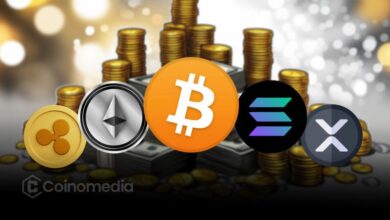Georgia Lawmakers Propose Blockchain in K-12 Schools
Georgia Democrats propose teaching blockchain, crypto, and Web3 in K-12 schools, citing Bitcoin’s growing use.

- Georgia lawmakers propose blockchain and crypto in school curriculum
- The resolution highlights Bitcoin’s rising acceptance
- Aims to prepare students for the digital economy
Preparing Students for a Digital Future
A new resolution introduced by the Democratic Party in Georgia’s House of Representatives is aiming to bring blockchain, cryptocurrency, and Web3 education into the K-12 curriculum. The proposal comes as digital assets like Bitcoin gain more traction in real-world usage, often being adopted as an alternative to traditional currencies.
The resolution emphasizes that students need to be equipped with the knowledge and skills to understand modern financial technologies. With the growing impact of blockchain on industries ranging from finance to supply chains, early education could help prepare the next generation for a rapidly evolving digital economy.
Why Blockchain and Crypto Matter Now
Lawmakers argue that digital currencies are no longer niche or speculative—they’re becoming part of everyday life. Bitcoin, for instance, is being accepted by major companies and even used in international trade and cross-border payments. Web3 technologies are reshaping the way people interact with the internet, introducing concepts like decentralization, digital ownership, and smart contracts.
By introducing these concepts early, students would not only understand how technologies like Bitcoin work, but also gain exposure to future career paths in blockchain development, cybersecurity, and decentralized finance (DeFi).
Building a Competitive Edge
If passed, Georgia would be among the first U.S. states to officially incorporate blockchain education into the public school system. This could give its students a competitive edge as the global job market increasingly values tech-savvy talent.
Educational programs could include the basics of how blockchain functions, the role of cryptocurrencies in global finance, and the potential of decentralized applications (dApps). The goal is to demystify these technologies and present them as tools rather than threats.
The proposal is still in the early stages, but it reflects a growing recognition among policymakers that blockchain and crypto are here to stay—and that education must evolve accordingly.



